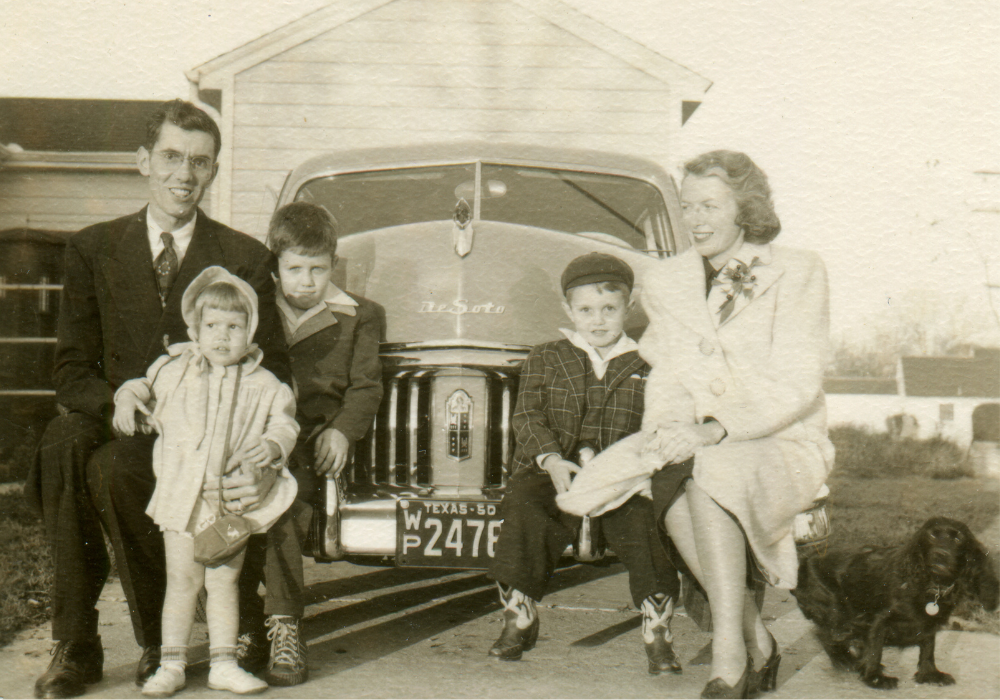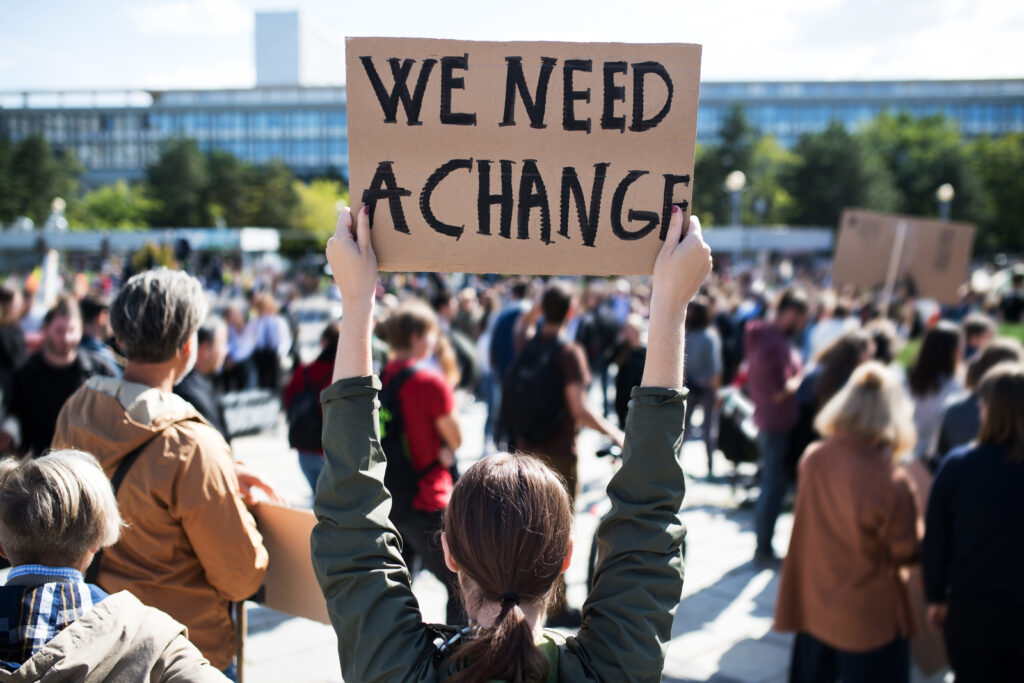Here’s why these timeless principles are exactly what our chaotic world is missing right now.

You’re overlooking powerful life lessons if you haven’t learned from the Greatest Generation. Through service, sacrifice, and a deep sense of unity, they came together in ways we can only imagine today. They lived through war, economic hardship, and cultural shifts, and they did so with a quiet strength that seems almost foreign to us now. Their principles weren’t flashy or attention-seeking. They were rooted in character, consistency, and community—things we often claim to value but rarely practice at the same depth.
Their values shaped a nation, and these 14 timeless ideals are exactly what we need to bring stability, strength, and purpose back into our lives.
1. They knew the power of serving others, and they didn’t wait to be asked.

Service was second nature to them. They didn’t need recognition or applause—they simply saw a need and stepped in to help. From joining the war effort to supporting their neighbors during lean times, they lived with an instinct to serve, not just survive. This wasn’t something they had to be taught; it was embedded in their daily choices. They knew that true community didn’t happen by accident—it was built, brick by brick, through generosity and action.
Imagine how different the world would feel if we all chose to help before being asked, if we made kindness and service our default, as per Barbara Russell in her article “What Can We Learn From The Greatest Generation?“. We’d rebuild trust, reduce loneliness, and create deeper bonds in our families, neighborhoods, and workplaces. In today’s hyper-individualistic culture, their example reminds us that some of the richest rewards in life come from giving freely of ourselves.
2. They sacrificed their comfort to build a better future.

Sacrifice wasn’t something they feared; it was something they embraced. They understood that building something lasting often meant putting aside temporary desires for a greater good. Whether it was sending loved ones off to war, enduring food rations, or saving every penny to buy a home, they kept the long view in mind. They didn’t whine about hardship. They expected it—and rose to meet it with grit.
In a time when convenience often trumps commitment, their approach feels revolutionary. What if we chose long-term fulfillment over short-term ease? What if we taught the next generation that discomfort can actually be a sign you’re growing, not something to run from? Their sacrifices laid the foundation for decades of prosperity, as stated by Alison Ensign at Family Search Blog. Our willingness to do the same could very well decide what kind of world we leave behind.
3. They valued honesty above everything else.

To them, integrity wasn’t negotiable. Your word was your reputation, and breaking it wasn’t just a personal failure—it was a betrayal of trust, as mentioned by Madeline Miles of BetterUp. They believed that relationships, businesses, and entire communities stood on the strength of honesty. Even when telling the truth was hard or uncomfortable, they did it, because truth built the kind of character they aspired to.
Imagine a society where truth-telling is the norm, not the exception. Where contracts are honored without loopholes, where people show up when they say they will, and where you don’t have to second-guess someone’s motives. Honesty creates emotional safety and lays the groundwork for everything from healthy marriages to stable governments. Their truth-first mindset could be the antidote to our current culture of spin, flattery, and performative virtue.
4. They didn’t just preach hard work; they lived it every single day.

They were doers, not talkers. They showed up early, stayed late, and didn’t expect praise for doing what they considered simply right. Whether on the farm, in factories, or raising families, they didn’t wait for motivation—they relied on discipline. They found meaning not in the spotlight but in the quiet satisfaction of a job well done.
What’s striking is how deeply tied their work ethic was to their sense of identity. Work wasn’t just about a paycheck; it was a reflection of who they were. In a time when burnout and disengagement are everywhere, maybe we need to return to that mindset—not by overworking ourselves, but by reclaiming pride in putting forth effort and doing our best, even when no one’s watching.
5. They respected each other, even when they disagreed.

Respect was a given, not something you had to earn with perfect opinions. They could argue passionately and still shake hands afterward. Disagreements didn’t devolve into insults or personal attacks—they were seen as a healthy part of civic life. They understood that listening didn’t mean agreeing, and they valued civility as much as they did conviction.
Can you imagine if we brought that kind of grace into our modern dialogues? If we stopped canceling people for missteps and instead sought to understand? They knew that relationships couldn’t survive without mutual respect, and neither can democracy. Their ability to separate ideas from identities is something we desperately need to relearn before we lose the ability to talk to one another at all.
6. They put family first and made time for the people who mattered.

Family wasn’t an afterthought or a weekend option—it was their anchor. They gathered around dinner tables, shared stories, and built traditions that lasted for generations. Even in the midst of economic hardship or war, they carved out time to be with the people who mattered most. They didn’t view time with family as negotiable—it was sacred.
In a world of screen time and overbooked schedules, that kind of intentional presence feels radical. But what if we turned down the noise and chose togetherness again? What if we slowed down long enough to be fully present? Their example reminds us that love grows in small, consistent moments, and that family bonds are forged not in grand gestures, but in quiet, everyday connection.
7. They took pride in doing things right the first time.

Sloppiness wasn’t tolerated—not because they were perfectionists, but because they respected themselves and others enough to care. They understood that quality mattered, and that cutting corners ultimately led to regret. Whether building a home, fixing a car, or preparing a meal, they put in the time to do it right. It wasn’t about being better than others—it was about taking ownership.
Imagine how much frustration and waste we could avoid if we embraced that same standard. If we stopped rushing and started taking real pride in the work we do, no matter how small. They knew that excellence isn’t flashy; it’s quiet, consistent, and deeply satisfying. And it’s something that spreads—raising the bar not just for ourselves, but for everyone around us.
8. They stood up for what they believed, even when it was hard.

They weren’t afraid to take a stand. Whether it was going to war for their country or defending a neighbor in need, they didn’t let fear silence them. They had a clear moral compass, and they followed it—even when it meant going against the grain. They didn’t seek approval; they sought to live with integrity.
In an era where peer pressure and public opinion dominate, their courage is something we sorely lack. But we need it now more than ever. Imagine the strength we’d gain if we stopped seeking validation and instead aligned our actions with our deepest values. Their bravery wasn’t about being loud—it was about being rooted. And it gave them a strength that couldn’t be shaken.
9. They knew how to stretch a dollar and make the most of what they had.

They didn’t confuse wealth with worth. They could make a meal out of leftovers, patch old clothes, and find joy in simple pleasures. They weren’t obsessed with status—they were focused on sustainability. They budgeted not out of fear, but out of wisdom. They planned, they saved, and they built security step by step.
In a consumer culture that thrives on debt and impulse, their frugality feels almost revolutionary. But it’s a path to peace most of us have forgotten. What if we could find contentment not in having more, but in needing less? Their financial discipline wasn’t about deprivation—it was about freedom. And it’s a kind of freedom that no amount of luxury can buy.
10. They lived with a sense of duty to country and community.

They didn’t outsource responsibility—they owned it. They voted, volunteered, and showed up when it counted. Patriotism wasn’t performative for them—it was personal. They believed that a strong country started with strong citizens, and that freedom came with obligations, not just rights. They saw themselves as part of something bigger.
Today, we’re often quick to criticize and slow to contribute. But what if we chose engagement over apathy? What if we believed, like they did, that our presence matters? Their sense of duty made them reliable, respected, and rooted in purpose. And that’s something we can all reclaim—starting right where we are.
11. They didn’t complain about the hard stuff—they pushed through it.

They were no strangers to pain, disappointment, or loss. But they didn’t let those things define them. They got up, dusted off, and kept going. They didn’t seek pity—they sought progress. That kind of emotional toughness wasn’t about suppressing feelings; it was about knowing when to feel, and when to act.
We live in a time when venting has become a way of life. But their resilience shows us there’s another way. What if we stopped rehearsing our struggles and started overcoming them? What if we honored our hardships without letting them consume us? Their grit wasn’t flashy—but it was powerful. And it made them quietly unstoppable.
12. They took pride in modesty and let their actions speak for them.

They didn’t need likes, follows, or public applause. They found dignity in humility. Their confidence didn’t come from being seen—it came from knowing who they were and what they stood for. They didn’t boast, because they didn’t need to. Their impact spoke for itself.
In today’s culture of self-promotion, that kind of modesty feels almost subversive. But it’s deeply grounding. What if we let go of the need to impress and instead focused on living well? Their humility made room for connection, authenticity, and peace of mind. And it’s a way of being that invites others to put their guard down too.
13. They kept promises, big or small, because integrity mattered.

They believed that reliability was the backbone of trust. If they said they’d do something, they did it—even if it became inconvenient. To them, breaking a promise was breaking your own character. They knew that small commitments—showing up on time, following through—built big trust over time.
In a world where flakiness is often brushed off, their consistency feels refreshing. What if we treated our word like a sacred thing again? What if people could count on us, not just when it’s easy, but when it’s hard? Their example reminds us that integrity isn’t about perfection—it’s about being dependable, again and again.
14. They understood the importance of a strong work-life balance.

Though they worked incredibly hard, they also knew when to stop and enjoy life. They didn’t glorify burnout—they guarded their time with family, with hobbies, and with rest. They valued leisure not as laziness, but as a vital part of a full life. They understood that being present with loved ones was just as important as showing up at work.
Today, we often push ourselves to the edge before even thinking about rest. But their rhythm was different—and healthier. What if we stopped worshiping productivity and started honoring presence? Their work-life balance wasn’t perfect, but it was intentional. And it created a kind of wholeness many of us are still chasing.
